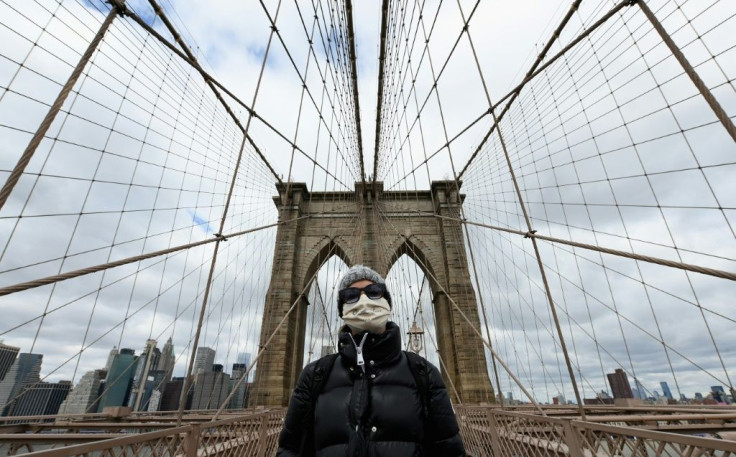Viruses Cannot Understand Stories: Bubbles, Crashes, And COVID-19

The Trump administration wanted a "no-crises" story of COVID-19. However, viruses are apolitical, and the reality of the pandemic is likely to exact a heavy human toll on the United States and the world.
Donald Trump may have believed he could shape the future by telling an all-is-well story. After all, it’s a strategy that has worked very well for Trump throughout his career. But storytelling-as-a-strategy can work only up to a point.
In business, we know this. Storytelling is how entrepreneurs raise money to pursue their entrepreneurial visions. Some stories are better than others. Trump’s latest real estate deal was always the “next big thing!”
There are times when stories are just that – tales with too little substance, or none at all.
Theranos Inc., the biotech startup once valued at $10 billion, was one of those tales. Its disgraced executives, CEO Elizabeth Holmes and company president Ramesh Balwani, claimed their company would revolutionize the blood-testing industry, delivering test results from a single drop of blood. Investors lined up to back the company, driving up its valuation. The science was a fraud.
The company collapsed; its storytellers Holmes and Balwani were charged with fraud.
It’s an extreme example, and most startups are not frauds. There are others, whose timing was off or whose promises were too high. Pets.com is a notable one, AskJeeves another.
Tesla, too, tells a tale: Tesla will disrupt tired Detroit automakers with electric muscle cars that will save the world by reducing global warming. This story provides the scaffolding that has encouraged investors to provide the funds that support Tesla’s operations. Uber and Lyft's stories are that they are technology companies disrupting taxis. Transportation in the future will be personalized, automatic and cheap. Uber and Lyft may be wildly popular, but they have never made a profit, and have mapped no path to profitability. Still, their founders weaved a story, lured investors, and raised money.
Companies live by stories or profit. Lacking profit, companies can live on stories only so long as investors continue to believe them. Eventually, the ability of an entrepreneur to shape a story is limited, either by the business environment or constraints of nature. Even the most enthusiastic investors, the ones in love with the story, will eventually stop financing a company when sustainable profits are not achieved. We are seeing that begin to unfold now, in Lyft, Uber and, maybe, Tesla.
Yes, good stories sell. And when they sell too well, they act like viruses that fuel speculative bubbles.
Politicians, too, live by stories. Trump has taken this to the extreme, embracing the entrepreneurial storytelling strategy and applying it to politics.
This has required some adjustments to the government, of course: suppressing storylines that do not fit the official narrative, attacking the media when it does not accept his accounts. His stories drown out other, competing accounts. And it has worked for him because a large enough audience has been compliant, including his loudest cheerleader, Fox News. In the Fox News/Trump echo chamber, climate denial eclipsed climate change. And COVID-19 was to be a memory by Easter.
Neither the climate nor COVID-19 understand stories. But, unlike the climate, the virus is impatient.
Tragically, the magical COVID-19 story that Trump has tried to tell will vastly extend the reach of the virus, more so in populations who believe Trump’s stories. For his entire career, Trump has relied on a storytelling strategy – it has propelled him to the presidency. At this point, it is his nature. But viruses are deaf to the storyline that they may be hoaxes. That is their nature.
To change the course of the COVID-19 outbreak, Trump needs a storyline that puts nature in the center of the story. We actually have one, it’s called “science.”
(Brent Goldfarb and David Kirsch are associate professors of strategy and entrepreneurship at the University of Maryland Smith School of Business and co-authors of the book Bubbles and Crashes: The Boom and Bust of Technological Innovation)
© Copyright IBTimes 2025. All rights reserved.





















